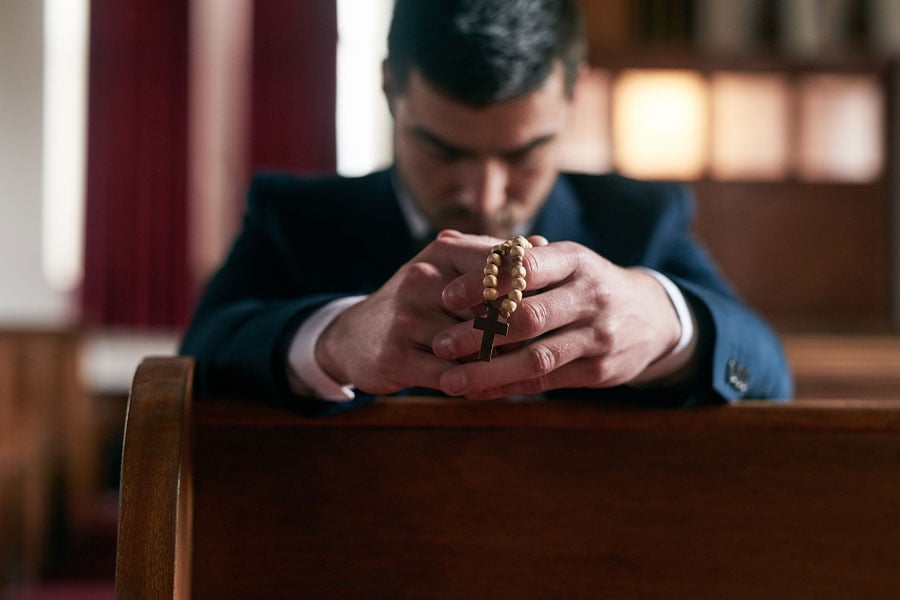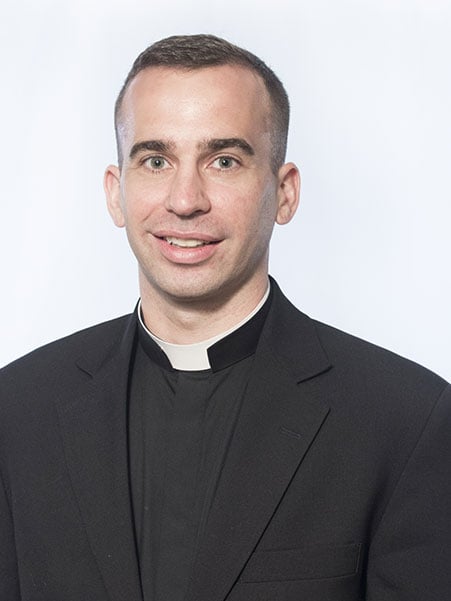Weakness is strength

Becoming a priest is daunting, and incredible responsibility is laid upon your shoulders. You are shepherding souls, numerous souls! This might cause someone to avoid considering the vocation to follow Jesus Christ as a priest. It did for the saints.
St. Cyprian first hid when he found out the bishop wanted to ordain him. St. Athanasius also fled to escape priesthood. St. Francis remained a deacon because he felt a deep sense of unworthiness. It’s understandable, then, that many young men find the priesthood too difficult to even consider.
My wise spiritual director during seminary, Father Mel Blanchette, PSS, gave me an important article to read that helped me, and many others, in discerning the priesthood. The article was titled, “Are You Weak Enough to be a Priest?” by Father Michael Buckley, SJ.
He points out that we Americans like to connect aptitude with a potential career: “Joe makes straight A’s, is well-spoken, pays great attention to details; therefore, he will be a great lawyer.”
This type of thinking is often transferred to priesthood: “John is prayerful, intellectually acute, is loved by many, gives great speeches and has a hard work ethic — therefore, he will be an amazing priest.” But for Fr. Buckley, such thinking is disastrous.

What makes a good priest is not his strengths but his weaknesses!
“For because He Himself has suffered and been tempted, He is able to help those who are tempted… For we have not a high priest who is unable to sympathize with our weaknesses, but one who in every respect has been tempted as we are, yet without sinning… He can deal gently with the ignorant and wayward since He Himself is beset with weakness” (Hebrews 2:18; 4:15; 5:2).
The reality is Jesus took on the weakness of human flesh, experiencing fear (Mark 14:33) and sadness over a friend’s death (John 11:35). Like us, Jesus experienced tiredness (John 4:6) and even helplessness (Matthew 27:46).
During seminary, a man might often question his calling because of his own weaknesses. But Fr. Buckley warns, “[We] can secularize our lives into an amalgam of desires and talents and feel our weakness as a threat to our priesthood, as indicative that we should rethink what was previously resolved, as symptomatic that we were never genuinely called, that we do not have the resources to complete what we once thought was our destiny and which once spoke to our generosity and fidelity.”
Didn’t Moses have a speech impediment (Exodus 4:10)? Didn’t Jeremiah think himself too young (Jeremiah 1:7)? Didn’t Peter deny our Lord three times (Luke 22:61)? These men, to name just a few, were anointed by God and understood well their weaknesses.
Fr. Buckley points out that it is his weakness that allows him to relate to the weaknesses of others: “Weakness relates us profoundly with other people. It allows us to feel with them the human condition, the human struggle and darkness and anguish that call out for salvation.”
And it is a man’s weakness that allows him to relate to God: “Thus it is the liability of Christ to suffer, His ability to be broken and shed that makes His priesthood effective and His Eucharist possible. How paradoxical this mystery is! The strength of our priesthood lies precisely in the weakness that seems to threaten it. The sensitivity and openness to discouragement and suffering are constitutive of the mystery of the priesthood itself.”
We should do all we can to encourage the good men in our parishes and families to consider the priesthood. Perhaps God will use and augment the strengths we see in them to be good priests. However, it won’t be their strengths that will make them good priests someday, but their weaknesses. Young man, are you weak enough to be a priest?
